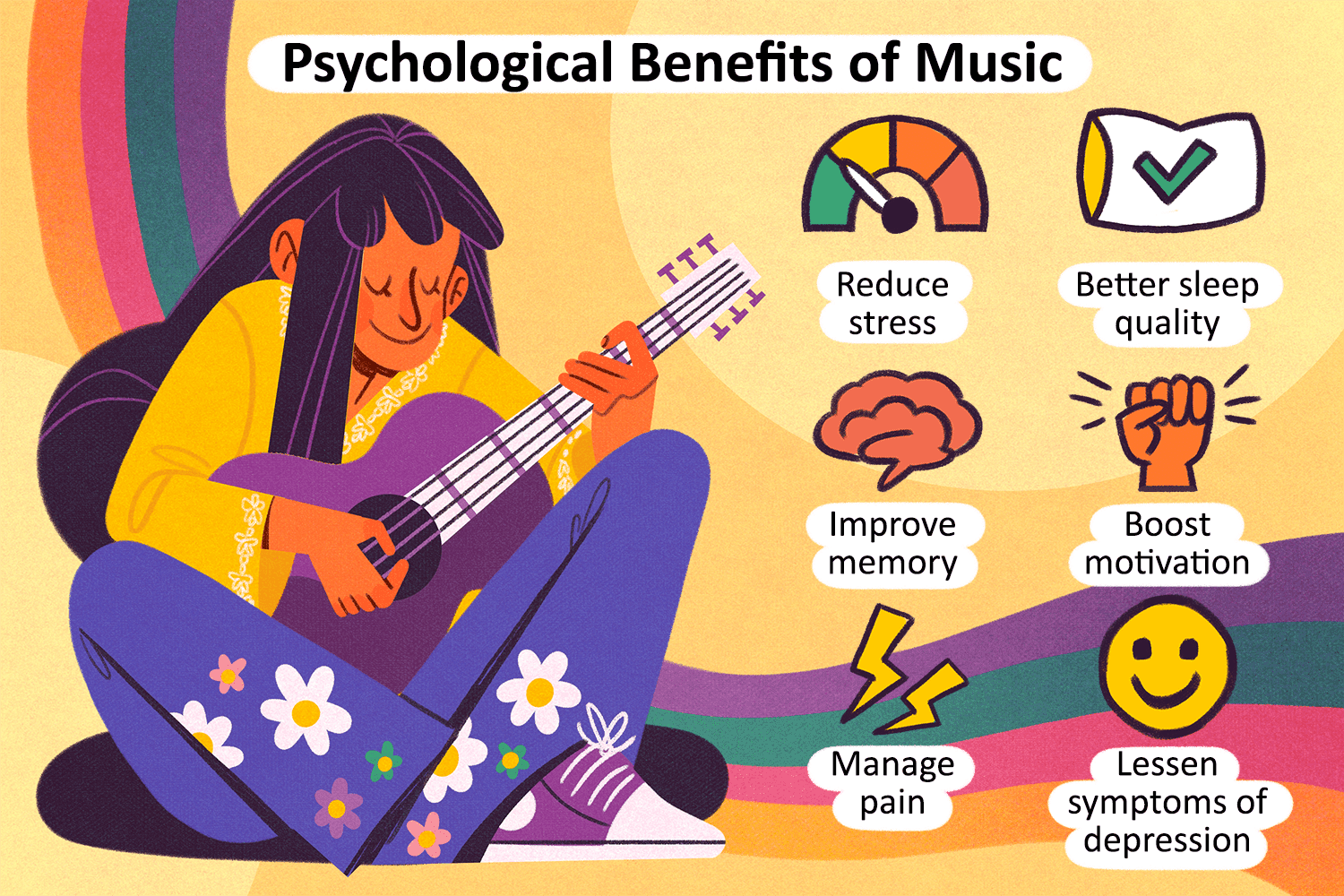Music therapy is an evidence-based treatment that has been found to be effective for people of all ages with various mental health issues. There are numerous reasons why it is an effective tool for mental health improvement. It can reduce stress and anxiety, enhance mood, boost self-esteem, improve communication skills, help with pain management, enhance cognitive function, encourage social interaction, provide a non-invasive treatment option, can be tailored to individual needs, and can be used in combination with other treatments. Music therapy is a safe and effective treatment option that can improve mental health and overall well-being. Individuals with mental health disorders are encouraged to consider music therapy as a part of their treatment plan.
10 Reasons Why Music Therapy Is Effective for Mental Health
Music is an integral part of our lives, and it has been used for centuries to calm the mind, soothe the soul, and even heal the body. Music therapy is the use of music to help individuals improve their physical, emotional, and mental health. It is an evidence-based treatment that has been found to be effective for people of all ages with various mental health issues. In this article, we will explore 10 reasons why music therapy is effective for mental health.
1. Reduces stress and anxiety
Listening to music can have a calming effect on the body and mind. Studies have shown that music therapy can reduce stress and anxiety levels in individuals with mental health disorders, such as depression, anxiety disorders, and post-traumatic stress disorder (PTSD).
2. Enhances mood
Music has a powerful effect on our emotions. It can elicit both positive and negative emotions, depending on the type of music being played. One of the benefits of music therapy is that it can enhance mood and improve overall emotional well-being.
3. Boosts self-esteem
Music therapy can help individuals improve their self-esteem and self-confidence. Engaging in musical activities can give individuals a sense of accomplishment and purpose. It can also be a way for individuals to express themselves in a nonverbal way, which can be especially helpful for those who have difficulty expressing themselves verbally.
4. Improves communication skills
Music therapy can be used to improve communication skills, particularly for individuals with developmental or communication disorders. Through musical activities, individuals can improve their ability to understand and interpret nonverbal cues, such as body language and facial expressions.
5. Helps with pain management
Music therapy has been found to be effective in managing pain in a variety of settings, including hospitals, nursing homes, and hospice care. Listening to music can reduce the perception of pain, and can also be used as a distraction technique during medical procedures.
6. Enhances cognitive function
Music therapy can improve cognitive function, particularly in individuals with Alzheimer’s disease or other forms of dementia. Listening to music or singing along to familiar songs can stimulate memories and improve cognitive function.
7. Encourages social interaction
Music therapy can be a way for individuals to interact with others and develop social skills. Group music therapy sessions can encourage individuals to work together and communicate effectively with others.
8. Provides a non-invasive treatment option
Music therapy is a non-invasive treatment option, and it does not have any harmful side effects. It is a safe and effective treatment option for individuals with mental health disorders.
9. Can be tailored to individual needs
Music therapy can be tailored to meet the individual needs of each person. The therapist can select music based on the person’s preferences and needs, and can design activities that are appropriate for their cognitive and physical abilities.
10. Can be used in combination with other treatments
Music therapy can be used in combination with other treatments, such as medication and talk therapy. It can be a complementary therapy that enhances the effects of other treatments.
Conclusion
Music therapy is an effective treatment option for individuals with mental health disorders. It can reduce stress and anxiety, enhance mood, boost self-esteem, improve communication skills, help with pain management, enhance cognitive function, encourage social interaction, provide a non-invasive treatment option, can be tailored to individual needs, and can be used in combination with other treatments. If you or a loved one is struggling with a mental health disorder, consider exploring music therapy as a part of your treatment plan.
